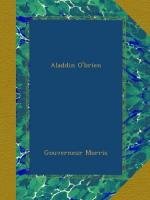It seemed now to the Confederate leaders that the Union batteries had been silenced, and that the time had come for Pickett, the Ney of the South, to go forward with all his forces. Only Longstreet demurred and protested against the charge. When Pickett asked him for the order to advance he turned away his head sorrowfully and would not speak. Then Pickett, that great leader of men, who was one half daring and one half magnetism and all hero, said proudly: “I shall go forward, sir.” And turned to his lovers.
Silence and smoke hung over Gettysburg.
Presently out of the smoke on the Confederate side came three lines of gray a mile long. Battle-flags nodded at intervals, and swords blazed in the sun.
Very deliberately and with pains about aiming, the Union batteries began to hurl solid shot against the gray advance. Soon holes were bitten here and there, and occasionally a flag went down, to be instantly snatched up and waved defiantly. When Pickett, Pettigrew, and the splendid brigade of Cadmus Wilcox had reached the bottom of the valley, their organization was as unbroken as a parade. But there shell, instead of round shot, met them, and men tasted death by fives and tens. But the lines, drawing together, closed the spaces left by mortality, and the flags began to approach each other. Then the gray men began to come up the slope, and there were thousands of them. But shell yielded to canister, and the muskets of the infantry sent out death in leaden showers, so that the great charge began to melt like wax over heat, and the flags hung close together like a trophy of battle in a chapel. But still the gray men came. And now, in a storm of flame and smoke, they reached the foremost cannons of the Union line, and planted their flags. So much were they permitted for the glory of a lost cause. For a little, men killed one another with the butts of guns, with bayonets, and with stones, and then, as the overdrip of a wave broken upon an iron coast trickles back through the stones of the beach to the ocean, so all that was left of Pickett’s great charge trickled back down the slope, driblets of gray, running blood. For a little while longer the firing continued. Battle-flags were gathered, and thrown together in sheaves. There was a little broken cheering, and to all intents and purposes the great war was at an end.
Aladdin, broken with grief and fatigue, went picking his way among the dead and wounded. He had lost Peter and Hannibal in that battle, and Hamilton and John were dead; he alone remained, and it was not just. He felt that the Great Reaper had spared the weed among the flowers, and he was bitter against the Great Reaper. But there was one more sorrow reserved for Aladdin, and he was to blaspheme against the God that made him.
There was still desultory firing from both armies. As when, on the Fourth of July, you set off a whole bunch of firecrackers, there is at first a crackling roar, and afterward a little explosion here and a little explosion there, so Gettysburg must have sounded to the gods in Olympus. Thunder-clouds begotten of the intense heat rolled across the heavens from east to west, accentuating the streaming glory of the setting sun, and now distant thunder rumbled, with a sound as of artillery crossing a bridge. Drops of rain fell here and there.




